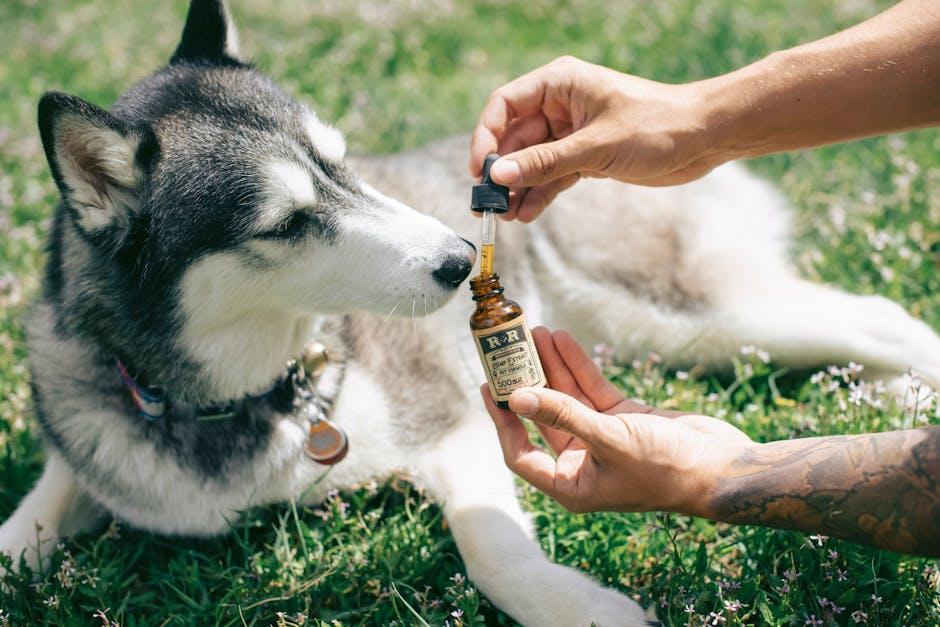Welcoming a new puppy into your home is a joyous occasion, filled with playful moments and boundless affection. As you embark on this delightful journey, one of the most crucial aspects to consider is your puppy’s nutrition. Proper feeding not only supports their playful energy but is fundamental to developing strong bones and muscles, ensuring they grow into healthy and robust adult dogs. In this article, we will guide you through essential puppy feeding tips, offering insights and practical advice to nurture your furry friend’s growth. With the right nutrition, you can lay the foundation for a lifetime of health and vitality, creating a bond that’s as strong as your pup’s developing body. Let’s explore how you can give your puppy the best start in life.
Choosing the Right Nutrient-Rich Foods for Your Growing Puppy
When it comes to nurturing your puppy’s development, selecting foods that are packed with essential nutrients is crucial. Proteins play a significant role in muscle development and overall growth. Opt for high-quality protein sources like chicken, turkey, or fish to ensure your pup gets the amino acids necessary for strong muscles. Don’t forget about healthy fats, such as those found in salmon or flaxseed oil, which are vital for brain development and maintaining a shiny coat.
In addition to proteins and fats, your puppy needs a balanced intake of vitamins and minerals to support their skeletal system. Look for foods fortified with calcium and phosphorus to promote strong bones and teeth. Consider incorporating the following nutrient-rich ingredients into your puppy’s diet:
- Sweet Potatoes: Packed with fiber and vitamins, they are excellent for digestive health.
- Carrots: A great source of beta-carotene, beneficial for vision and immune function.
- Blueberries: Rich in antioxidants, they help combat oxidative stress.
- Pumpkin: Offers digestive benefits and is high in essential vitamins.
By ensuring your puppy’s meals are balanced with these nutrient-dense options, you’re setting them up for a lifetime of health and vitality.

Establishing a Consistent Feeding Schedule to Support Healthy Development
Establishing a feeding schedule is crucial for your puppy’s growth and development. Puppies thrive on routine, and a consistent feeding schedule helps regulate their metabolism and energy levels. Start by feeding your puppy three to four times a day, gradually transitioning to two meals a day as they grow. Make sure to adjust portion sizes based on their age, breed, and activity level. Consistency is key to ensuring your puppy develops strong bones and muscles.
- Morning: A nutritious breakfast sets the tone for the day.
- Midday: A balanced lunch keeps energy levels stable.
- Evening: A hearty dinner helps them recover and grow during rest.
Remember to always provide fresh water and avoid feeding your puppy right before or after exercise to prevent digestive issues. By maintaining a reliable feeding schedule, you’re laying the foundation for a lifetime of healthy eating habits and physical well-being.

Incorporating Safe and Beneficial Supplements for Bone and Muscle Growth
Ensuring your puppy’s diet supports optimal bone and muscle growth involves more than just choosing the right food. Incorporating safe supplements can be a crucial step in promoting a healthy development. When considering supplements, it’s important to focus on those that are both safe and beneficial for your furry friend. Here are some key options to consider:
- Calcium and Phosphorus: These minerals are essential for bone health. A balanced ratio is crucial, so look for supplements specifically designed for puppies to avoid any potential imbalances.
- Omega-3 Fatty Acids: Known for their anti-inflammatory properties, these fatty acids can aid in muscle development and joint health. Fish oil is a popular choice, but ensure it’s purified and specifically formulated for dogs.
- Glucosamine and Chondroitin: These compounds support joint health and can be particularly beneficial for breeds prone to joint issues. Consult your vet to determine the appropriate dosage for your puppy’s needs.
- Vitamin D: This vitamin is crucial for calcium absorption, helping to strengthen bones. Ensure your puppy’s food or supplements contain an adequate amount, but avoid excessive dosages.
Always consult with a veterinarian before introducing any new supplements into your puppy’s diet. They can provide personalized recommendations based on your puppy’s breed, age, and specific health needs. By carefully selecting the right supplements, you can give your puppy the best start towards a lifetime of strength and vitality.

Monitoring Your Puppys Growth and Adjusting Dietary Needs
As your puppy embarks on the exciting journey of growth, it’s crucial to keep a keen eye on their development and adapt their diet to support healthy bone and muscle formation. Puppies grow at a rapid pace, and their dietary needs will change as they progress through different life stages. Regularly weighing your puppy is an excellent practice, allowing you to track their growth curve and make necessary adjustments to their feeding routine. A steady growth rate indicates a well-balanced diet, whereas sudden weight fluctuations may signal the need for dietary changes.
- Protein Power: Ensure your puppy’s diet is rich in high-quality protein sources, such as chicken, beef, or fish, to support muscle development.
- Calcium and Phosphorus Balance: These minerals are vital for strong bones. Consult your vet to ensure your puppy’s food has the right balance.
- Monitor Meal Portions: Adjust portion sizes based on your puppy’s age, breed, and activity level to prevent overfeeding or underfeeding.
- Hydration: Always provide fresh water to keep your puppy hydrated, which is essential for overall health and growth.
By staying attuned to your puppy’s growth and nutritional needs, you can help lay the foundation for a robust and healthy adult dog. Remember, regular check-ups with your veterinarian can provide additional guidance tailored specifically to your puppy’s unique requirements.
















